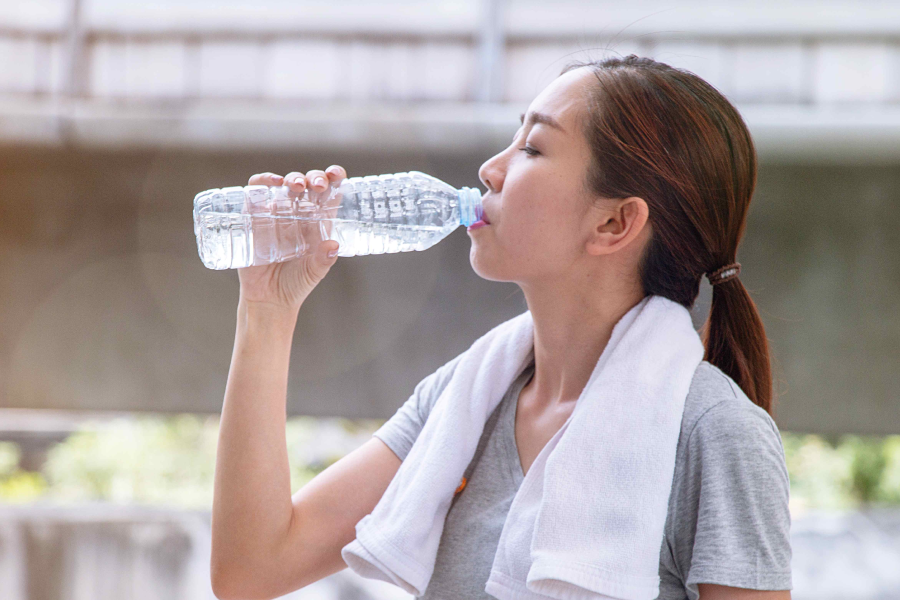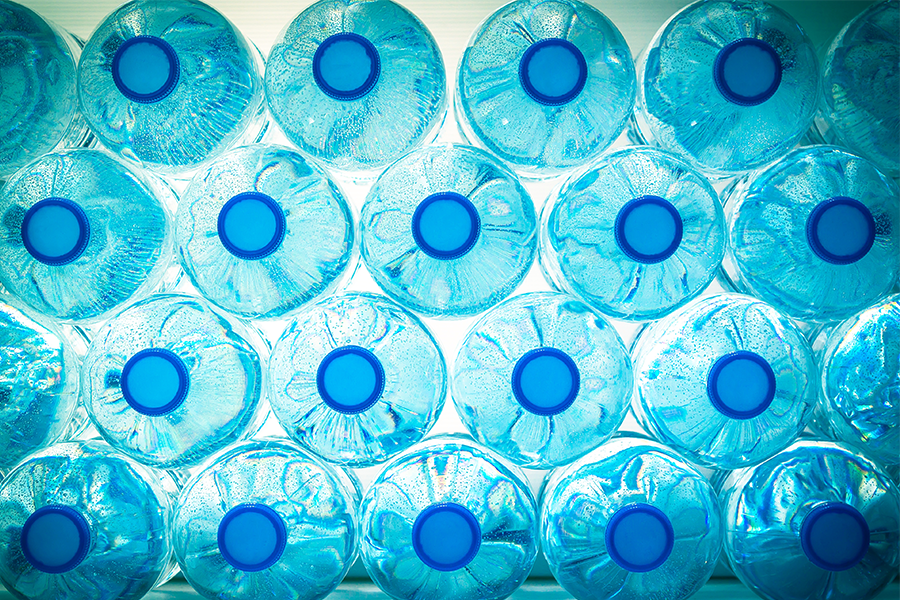What's in My Disposable Water Bottles?
By Shelby Tatomir on March 12, 2019 in Healthy Living

Coffee, juice, soda: these are the drinks that we know can damage our teeth and our health. We would never put water in that category, right? We’ll let you decide, as new studies are looking at how the effects of disposable water bottles extend beyond the environment and into our bodies. The results might make you question whether drinking from plastic water bottles is dangerous to your health.
The Effects of Disposable Water Bottles
“Microplastic contamination” sounds like something out of an apocalyptic sci-fi movie. Unfortunately, chances are you probably are experiencing these plastics daily and not even knowing it. When plastics are left out in the sunlight for long periods, they break down into microplastics. It’s one of the reasons you shouldn’t leave water bottles in a hot car. Microplastic contamination is when something you eat or drink has “small plastic pieces less than 5 millimeters long” in it.
Researchers from the State University of New York compared 257 different bottles from 11 different brands. They measured the levels of microplastics in disposable water bottles versus tap water. They found that:
• 93% of the bottled water showed some sign of microplastic contamination.
• They believed the bottles and bottling process were the source of some of the contamination.
• They concluded that we swallow about 10.4 tiny particles of plastic when we drink one liter of bottled water.
Effects of Disposable Water Bottles on Health: Here’s What it Boils Down To
If you prefer to drink tap water, you’re probably limiting your exposure to microplastics. Researchers believe tap water drinkers consume about half the amount of microplastics that bottled water drinkers do.
Is drinking microplastics harmful? The verdict is still out. Here’s what experts had to say in a 2018 Business Insider article on this topic:
- "The science on micro-plastics and microfibers is an emerging field, in its infancy, which requires further scientific analysis." –Aquafina statement
- "We stand by the safety of our products, and welcome continued study of plastics in our environment. It's clear the world has a problem with plastic waste and that too much of it ends up in waterways and in the world's oceans." –Dasani statement
- "Currently there is no evidence on impacts to human health." –Tarik Jašarević, World Health Organization

The take-aways:
- Use a glass or reusable BPA-free water bottle, if only to cut down on waste.
- Clean your reusable water bottle at the end of each use with soap and water, or a vinegar or bleach solution.
- If you drink bottled water, don’t drink the water if the bottle was left in the sun, your car or a humid place like a garage. Even reusable plastic water bottles may break down in extreme heat, so you’ll want to dump water out if the bottle was exposed to high temperatures.
To learn more about bottled and tap water types and regulations, visit this page of the Food and Drug Administration’s website. Remember, tap water with fluoride is best – not only do you help the environment, it is good for your dental health!